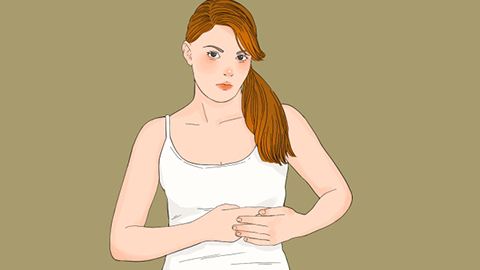What are the causes of delayed menstruation?
Menstrual delay may be caused by excessive mental stress, weight changes, pregnancy, menstrual disorders, or polycystic ovary syndrome (PCOS). Appropriate management can be selected based on specific circumstances. If discomfort occurs, timely medical consultation is recommended to clarify the situation and follow medical advice for treatment to avoid delaying the condition.

1. Excessive Mental Stress: Long-term tension, anxiety, or depression can interfere with the normal function of the hypothalamic-pituitary-ovarian axis and affect hormone secretion, leading to menstrual delay. It is recommended to relieve stress through exercise, meditation, or talking with friends, maintain a regular schedule, and ensure 7-8 hours of sleep each night to help regulate the endocrine system and restore normal menstrual cycles.
2. Weight Changes: A sudden increase in body weight or excessive dieting for weight loss can disrupt the body's hormonal balance. Adipose tissue plays an important role in estrogen production, and weight fluctuations can alter estrogen levels, thereby affecting menstruation. Maintaining a healthy weight, balanced diet, avoiding excessive dieting or overeating, and engaging in appropriate physical exercise can help maintain stable endocrine function.
3. Pregnancy: If a woman engages in unprotected sexual intercourse during the ovulation period and the fertilized egg successfully implants, it can lead to amenorrhea, a common physiological cause of menstrual delay. Usually, there are no special accompanying symptoms, although early pregnancy reactions such as nausea, vomiting, and breast tenderness may occur. No specific treatment is required, but regular prenatal checkups are necessary to ensure maternal and fetal health.
4. Menstrual Disorders: Emotional stress, malnutrition, or unhealthy lifestyle habits may cause menstrual irregularities, leading to delayed or early menstruation, increased or decreased menstrual flow, and may also be accompanied by abdominal pain, dizziness, fatigue, and other symptoms. Patients may take medications such as Qizhi Xiangfu Pills, Motherwort Granules, or Aifu Nuangong Pills as directed by a physician to alleviate discomfort.
5. Polycystic Ovary Syndrome (PCOS): The causes are related to genetic and environmental factors. The main symptoms include prolonged menstrual cycles or amenorrhea, often accompanied by hirsutism, obesity, and infertility, with polycystic changes in the ovaries. Patients may take medications such as Ethinylestradiol Cyproterone Acetate Tablets, Metformin Hydrochloride Tablets, or Progesterone Capsules under medical guidance to improve symptoms.
In daily life, women should maintain good habits and emotional well-being and undergo regular gynecological examinations to ensure the health of the reproductive system.




